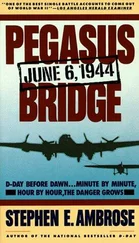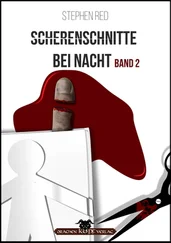Stephen Ambrose - Band of Brothers
Здесь есть возможность читать онлайн «Stephen Ambrose - Band of Brothers» весь текст электронной книги совершенно бесплатно (целиком полную версию без сокращений). В некоторых случаях можно слушать аудио, скачать через торрент в формате fb2 и присутствует краткое содержание. Жанр: История, на английском языке. Описание произведения, (предисловие) а так же отзывы посетителей доступны на портале библиотеки ЛибКат.
- Название:Band of Brothers
- Автор:
- Жанр:
- Год:неизвестен
- ISBN:нет данных
- Рейтинг книги:4 / 5. Голосов: 1
-
Избранное:Добавить в избранное
- Отзывы:
-
Ваша оценка:
- 80
- 1
- 2
- 3
- 4
- 5
Band of Brothers: краткое содержание, описание и аннотация
Предлагаем к чтению аннотацию, описание, краткое содержание или предисловие (зависит от того, что написал сам автор книги «Band of Brothers»). Если вы не нашли необходимую информацию о книге — напишите в комментариях, мы постараемся отыскать её.
Band of Brothers — читать онлайн бесплатно полную книгу (весь текст) целиком
Ниже представлен текст книги, разбитый по страницам. Система сохранения места последней прочитанной страницы, позволяет с удобством читать онлайн бесплатно книгу «Band of Brothers», без необходимости каждый раз заново искать на чём Вы остановились. Поставьте закладку, и сможете в любой момент перейти на страницу, на которой закончили чтение.
Интервал:
Закладка:
A German machine-gun opened fire on the group. When it did, the prisoners tried to jump the Americans. Guarnere shot them with his pistol. "No remorse," he said when describing the incident forty-seven years later. "No pity. It was as easy as stepping on a bug." After a pause, he added, "We are different people now than we were then."
At about 0600 hours they ran into Capt. Jerre Gross of D Company and forty of his men. They joined forces to head toward Ste. Marie-du-Mont, some 8 kilometers southeast. In a few minutes they ran into the 2nd Battalion staff with about forty more men. Winters found an M-l, then a revolver, belt, canteen, and lots of ammunition, "so I was feeling ready to fight—especially after I bummed some food from one of the boys." Lipton found a carbine. The others armed themselves.
As the Americans moved toward Ste. Marie-du-Mont, so did the commander of the German unit defending the area, Col. Frederick von der Heydte of the 6th Parachute Regiment. He was an experienced soldier, having been in the German Army since the mid-1920s and having led men in combat in Poland, France, Russia, Crete, and North Africa. Colonel von der Heydte was the senior German officer present, as the division commanders were in Rennes, on the Seine River, for a war game. He had one battalion in and around Ste. Mere-Eglise, another near Ste. Marie-du-Mont, the third in Carentan. All his platoons were standing too, some were trying to engage the Americans, but confusion caused by reports of landings here, there, seemingly everywhere had made concerted counterattacks impossible.
Colonel von der Heydte wanted to see for himself. He drove his motorcycle from Carentan to Ste. Marie-du-Mont, where he climbed to the top of the church steeple, 50 or 60 meters above the ground. There he had a magnificent view of Utah Beach.
What he saw quite took his breath away. "All along the beach," he recalled in a 1991 interview, "were these small boats, hundreds of them, each disgorging thirty or forty armed men. Behind them were the warships, blasting away with their huge guns, more warships in one fleet than anyone had ever seen before."
Around the church, in the little village and beyond in the green fields crisscrossed by hedgerows, all was quiet. The individual firefights of the night had tapered off with the coming of light. Von der Heydte could see neither American nor German units.
Climbing down from the steeple, the colonel drove his motorcycle a couple of kilometers north to Brecourt Manor, where the German artillery had a battery of four 105 mm cannon dug in and camouflaged. There were no artillery men around; evidently they had scattered in the night after the airborne landings began. Von der Heydte roared back to Carentan, where he ordered his 1st Battalion to occupy and hold Ste. Marie-du-Mont and Brecourt, and to find some artillerymen to get that battery working. It was perfectly placed to lob shells on the landing craft on Utah Beach, and to engage the warships out in the Channel.
By this time, about 0700, E Company consisted of two light machine-guns, one bazooka (no ammunition), one 60 mm mortar, nine riflemen, and two officers. As the 2nd Battalion moved into a group of houses in a tiny village called Le Grand-Chemin, just three kilometers or so short of Ste. Marie-du-Mont, it drew heavy fire from up-front. The column stopped; Winters and his men sat down to rest. Ten or fifteen minutes later, battalion S-l Lt. George Lavenson, formerly of E Company, came walking down the road. "Winters," he said, "they want you up-front."
Captain Hester, S-3, and Lieutenant Nixon, S-2, both close friends of Winters, told him there was a four-gun battery of German 105 mm cannon a few hundred meters across some hedgerows and open fields, opposite a large French farmhouse called Brecourt Manor. Intelligence had not spotted the cannon, as they were dug into the hedgerow, connected by an extensive trench system, covered by brush and trees. There was a fifty-man platoon of infantry defending the position (part of Colonel von der Heydte's 1st Battalion); the cannon had just gone into action, firing on Utah Beach, some 4 or 5 kilometers to the northeast. The 2nd Battalion was less than 100 men strong at that point. Lieutenant Colonel Strayer had responsibilities in all four directions from Le Grand-Chemin. He was trying to build his battalion up to somewhere near its full strength of 600 men, and to defend from counterattacks. He could only afford to send one company to attack the German battery. Hester told Winters to take care of that battery.
It was 0830. Captain Sobel was about to get a little revenge on Hitler, the U.S. Army was about to get a big payoff from its training and equipment investment, the American people were about to get their reward for having raised such fine young men. The company that Sobel and the Army and the country had brought into being and trained for this moment was going into action.
Winters went to work instinctively and immediately. He told the men of E Company to drop all the equipment they were carrying except weapons, ammunition, and grenades. He explained that the attack would be a quick frontal assault supported by a base of fire from different positions as close to the guns as possible. He set up the two machine-guns to give covering fire as he moved the men forward to their jump-off positions.
The field in which the cannon were located was irregular in shape, with seven acute angles in the hedgerow surrounding it. This gave Winters an opportunity to hit the Germans from different directions.
Winters placed his machine-guns (manned by Pvts. John Plesha and Walter Hendrix on one gun, Cleveland Petty and Joe Liebgott on the other) along the hedge leading up to the objective, with instructions to lay down covering fire. As Winters crawled forward to the jump-off position, he spotted a German helmet— the man was moving down the trench, crouched over, with only his head above ground. Winters took aim with his M-l and squeezed off two shots, killing the Jerry.
Winters told Lieutenant Compton to take Sergeants Guarnere and Malarkey, get over to the left, crawl through the open field, get as close to the first gun in the battery as possible, and throw grenades into the trench. He sent Sergeants Lipton and Ranney out along the hedge to the right, alongside a copse of trees, with orders to put a flanking fire into the enemy position.
Winters would lead the charge straight down the hedge. With him were Pvts. Gerald Lorraine (of regimental HQ; he was Colonel Sink's jeep driver) and Popeye Wynn and Cpl. Joe Toye.
Here the training paid off. "We fought as a team without standout stars," Lipton said. "We were like a machine. We didn't have anyone who leaped up and charged a machine-gun. We knocked it out or made it withdraw by maneuver and teamwork or mortar fire. We were smart; there weren't many flashy heroics. We had learned that heroics was the way to get killed without getting the job done, and getting the job done was more important."
When Ranney and Lipton moved out along the hedge, they discovered they could not see the German positions because of low brush and ground cover. Lipton decided to climb a tree, but there were none of sufficient size to allow him to fire from behind a trunk. The one he picked had many small branches,- he had to sit precariously on the front side, facing the Germans, exposed if they looked his way, balancing on several branches. About 75 meters away, he could see about fifteen of the enemy, some in the trenches, others prone in the open, firing toward E Company, too intent on the activity to their front to notice Lipton.
Lipton was armed with a carbine he had picked up during the night. He fired at a German in the field. The enemy soldier seemed to duck. Lipton fired again. His target did not move. Not certain that the carbine had been zeroed in, Lipton aimed into the dirt just under the man's head and squeezed off another round. The dirt flew up right where he aimed; Lipton now knew that the carbine's sights were right and his first shot had killed the man. He began aiming and firing as fast as he could from his shaky position.
Читать дальшеИнтервал:
Закладка:
Похожие книги на «Band of Brothers»
Представляем Вашему вниманию похожие книги на «Band of Brothers» списком для выбора. Мы отобрали схожую по названию и смыслу литературу в надежде предоставить читателям больше вариантов отыскать новые, интересные, ещё непрочитанные произведения.
Обсуждение, отзывы о книге «Band of Brothers» и просто собственные мнения читателей. Оставьте ваши комментарии, напишите, что Вы думаете о произведении, его смысле или главных героях. Укажите что конкретно понравилось, а что нет, и почему Вы так считаете.



![Stephen Ambrose - Citizen Soldiers [Condensed]](/books/346737/stephen-ambrose-citizen-soldiers-condensed-thumb.webp)
![Stephan Orth - Behind Putin's Curtain - Friendships and Misadventures Inside Russia [aka Couchsurfing in Russia]](/books/415210/stephan-orth-behind-putin-s-curtain-friendships-a-thumb.webp)





